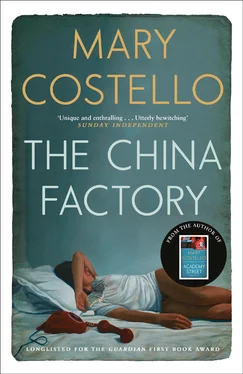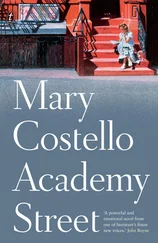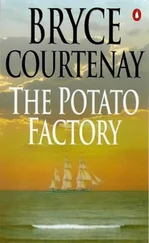The afternoon was warm and still. She moved towards Michael and away from him, repeatedly. She feared the return of the Americans but did not know why. She made coffee and placed a mug at his elbow and then walked to the window.
‘I think I’ll go back to work,’ she said.
He twisted his body towards her. ‘You’re joking.’
‘No, I’m serious.’
They looked at each other. ‘I knew this would happen,’ he said.
‘I have too much time. I don’t need all this time.’
‘You did before. You wanted time. That’s what you wanted, you said.’
‘That was then.’
She had thought she would recreate the long mornings of her youth spent in libraries. She thought she might recover something in the poems and novels from those years and take it back out with her, take it home to Michael, to both of them. But the words did not affect her in the way they once had, as if, in the intervening years, she had shed some of her imagination, or access was denied, or there was not enough room in her head for such words any more.
He turned back to his laptop, lifted the briefcase from the floor and removed some files. She looked out the window. She could not tell him that she was afraid. Lately, she was preoccupied with a feeling of hopes sinking. She woke at night primed for sounds in the dark, for the flapping of a moth’s wings too close to her face or the screech of a late-night siren on the city streets. Her fear was odd and diffuse. She waited to hear her name on Michael’s sleeping breath, or for a word to come to her, or a dream — a sign that the world was all right and it was all in her head. Michael would rise early and shave and head out into the morning and for a moment it seemed that everything was in order, as it should be, as it always had been.
‘You could always have a child,’ he said then.
She almost smiled at the release his words brought, as if they’d been banked up treacherously between them. Outside she heard the blackbird trill, like a plea, Hear me, hear me… over and over. He turned his face to her. ‘Well?’
‘I don’t know. And stop bringing it up slyly, like that.’
She went back to her chair in the sun. She used to think that a child might return her to poetry. That what the poets had once granted her — those brief encounters with the sublime — a child might too. But she would read a poem and feel the approach of something terrible. Fear and sadness without cause. Still she would keep returning to the poem. And then, one day, it came to her: a child would do the same. She could not trust herself to love a child without obsession. She might raise a child brimming with fears. She might grow to fear the child itself.
She felt Michael move about inside. She closed her eyes. It was his name that had first drawn her. It had evoked tenderness in her. She knew of no Michael who was not a good man. In the early days they walked about the city, finding pubs and cafés in whose dark corners they would hunker down. In the evenings he cooked for her and she fell under his spell. She slipped off her sandals and raised her bare feet onto his lap and, still talking, he took them in his hands. His touch, his burn on her, consumed her. After they were married he’d come home from work and they’d open wine and he’d talk of his day, and they’d sit there in glorious union. She could never have too much of him. But then, when the wine wore off, a little fear would steal in and occupy her. She thought she would get all used up, and he would know this. She thought there would never be enough of her for him.
In the afternoon she sat in the cool bedroom. The cottage had thick white walls and cold slate floors, softened with scatter rugs. His question lingered in her head, and, unexpectedly, a memory pressed in, from a winter’s evening in London a few years before. They had emerged out of the Underground onto the crowded street at Earl’s Court, tired and thoughtful and separate after a day wandering in the city. A mist began to fall, softly, magically, making the orange lights and the whole street opaque. She stopped and gazed up at this strange, vaporous light and when she went to move, a sea of dark faces encircled her. They pressed closer, soundless, menacing. She opened her mouth to say something. She felt a hand rough on her breast. She wheeled around but she was penned in. She saw Michael’s blue rain jacket up ahead. She called his name. The gang pressed tighter. They will kill me, she thought, they will drag me into that alley and rape me and kill me before he has turned around. But then he turned and took in the scene, and, wordlessly, beckoned to her. Come on, come on . She stepped to the right and the pack swarmed with her. Come on, hurry up , his eyes were saying. She stiffened her shoulders and pushed out through the ring of youths and up the street towards him. She thought he would open his arms. What the hell was that? he asked. She looked around for a lamppost, a ledge, a shop window to lean on.
She looked around the bedroom now. If she were ever pregnant he would distance himself from her in public. He would not be proud to declare his paternity, like other men, men who walk beside their slow, swollen wives and lay a hand on the small of their backs, to take the strain.
Late in the afternoon she strolled down the lane, running her fingers along the frilled edges of ferns. A yellow ESB van passed the gate and stopped a little further on. Four or five young men climbed out and began to unload large spools of cable and equipment from the van and then rolled the cable into a nearby field. She heard a rustling in the bushes, a bird hidden in its depths, and she turned and walked back to her chair and her book. When she looked up a while later an ESB man in a yellow helmet had begun the vertical ascent of a pole. Voices drifted across to her. Her book fell to the ground. Then Michael was beside her. He said, ‘Hi.’ His look held an appeal.
An engine started up and they turned their heads. The ESB van began to advance slowly on the lane beyond the hedge. A shout went up from the top of the pole. A cable attached to the climber’s safety belt lifted into the air and grew taut. The van moved along, oblivious, dragging the cable until the pole began to lean sideways. Then a shout went up from below and she saw the climber drop, feet first, to the ground. Michael swore and began to run. She followed him down the lane out on to the road. She stepped up on the grass verge. The young men were bent over their fallen friend. They called his name, urgently. Seamus. Their accents were local, the clear clipped sounds of the north. Michael went into the field, looking like a man who could help.
‘Don’t move him. Keep talking to him.’ She saw that the men were little more than boys. Their faces were pale and grave. She heard the clang of iron gates and running feet.
And then, miraculously, the fallen man stirred. The circle of comrades tightened, opened out briefly, then tightened again. She caught a glimpse of his head lifting slowly off the ground, as he emerged out of his strange remote world. His face came into view and raised itself to the sun.
Bob and Susan brought back trout and cooked it for dinner. They put on music and placed lighted candles on the table and the windowsill. Michael declined the wine, joking that he needed to keep his senses while those around him lost theirs. Outside the light was fading. They talked of travel and holidays and houses. Bob and Susan were hunting for an old brownstone in Chicago. They described exactly the kind they wanted. Romy excused herself and went out to the scullery. She ran the cold tap and stood looking out the window. She remembered the young ESB men’s faces as their friend came to. She thought of them around his hospital bed at that moment, smiling, joking, changed. Saying his name over and over, as if they might glean something in its syllables, some hint of the marvellous.
Читать дальше












